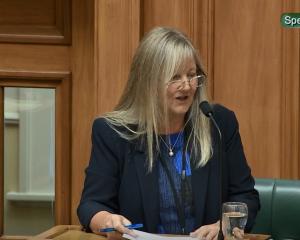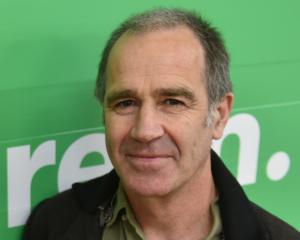A bill to make match-fixing a criminal offence has passed its first reading in Parliament with unanimous support from all parties.
The Match-Fixing Bill will provide penalties of up to seven years in prison for those who try to influence the outcome of a match or race, and is expected to be passed in time for the hosting of the Cricket World, as well as the later hosting of the Fifa Under-20 World Cup next year.
Justice Minister Judith Collins said New Zealand had a well-deserved reputation for playing fair but referred to the recent admission of match-fixing by former Black Cap player Lou Vincent and ongoing investigation of Chris Cairns, who has denied any involvement in match-fixing.
"As we have seen from recent events, New Zealand is not immune to this growing threat. That is why the Government is taking action on this matter."
The bill was designed to protect the integrity of New Zealand sport.
"Match-fixing is a growing problem internationally and has been described as the number one threat to sport .. The International Centre for Sport Security has estimated that over $140 billion is laundered world wide every year through sport betting. This illustrates the extent to which organised crime is seeking to exploit the sporting sector."
The bill introduces a new offence of 'obtaining by deception or causing loss by deception,' targeting those those who try to manipulate or influence the outcome of a match or race, or any component of it, to benefit from it or cause loss to others. It will apply to matches in all sporting codes, as well as races, such as horse, boat or car races.
Labour's sports spokesman Trevor Mallard said while it was likely match-fixing was already a crime, the bill made a minor but important change.
"It makes it very clear that match-fixing is a crime. This puts it beyond any doubt whatsoever."
A keen cyclist, he also attributed the crackdown on doping in recent years for the improved success of New Zealand's cyclists on the international stage.
"Clearly in the last decade or more as there has been less doping, New Zealand athletes have been doing better and better at cycling relative to the rest of the world."
It is the last day of Parliament before the election and Labour MPs also took the chance to have a go at National over its deals in the Epsom and Ohariu electorates. Mr Mallard said the match-fixing bill did not apply to such deals in electorate seats in which the National Party was trying to fix the outcome by telling voters to vote for other party's candidates.
However, he pointed he had a slight conflict because the Green Party candidate in his Hutt South electorate, Holly Walker, was doing the same thing by telling voters she only wanted their party vote.
"I've therefore got slightly mixed feelings about people who are running in an electorate and saying 'give us the party vote but not the electorate vote'."
Ms Walker is leaving Parliament, but is still a candidate to push for the Green party vote.
Fellow Labour MP Chris Hipkins also said National was guilty of match-fixing itself because of the deals in Epsom and Ohariu.
"How ironic the Government should be saying we don't want match-fixing in sport. This Government seem to think they can jack it up over cups of tea."
The bill will now go to the law and order select committee and the Government hopes to have it passed by the end of the year, although that will be up to the next government to determine after the election.
A spokeswoman for Sport Minister Murray McCully said the bill needed to be passed into law by February next year in order to take effect in advance of the Cricket World Cup.
- Claire Trevett of the New Zealand Herald












